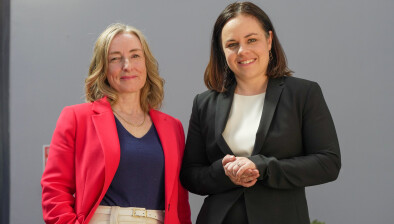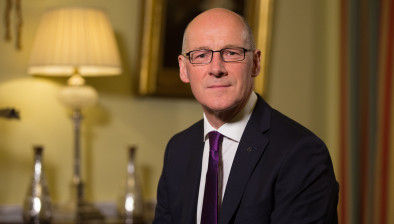Emergency budget cuts £615m in public spending and boosts cost of living support

John Swinney
Spending cuts of £615 million were announced by the Scottish Government in its emergency budget alongside measures help to those most impacted by the cost of living crisis.
The Emergency Budget Review (EBR) for 2022-23 identifies funding of around £35m for a range of initiatives to support people with the increased cost of living, including doubling the Fuel Insecurity Fund, doubling the Scottish Child Bridging Payment to £260 and a new £1.4m Island Cost Crisis Emergency Fund to help island households manage higher energy costs.
Significant investment in public sector pay deals – delivering higher increases in pay for low earners – is also designed to help families and individuals deal with the cost of living crisis.
Other measures include:
- confirming funds to local authorities to support Discretionary Housing Payments
- establishing a Joint Taskforce with business, COSLA, local authorities and agencies to consider the differing impacts of regulation on business
- extending energy advice to businesses by investing £300,000 to expand the services of Business Energy Scotland, while doubling the value of the SME energy efficiency Loan and Cash Back Scheme for energy efficiency to £20,000
- new payment break options to help protect those who have agreed to repay debt through the Debt Arrangement Scheme but face unexpected increases in the cost of living
The cuts of £615m follow savings of £560m announced on 7 September.
The savings were made in a number of areas, including but not limited to:
- £150m in capital infrastructure funding
- £116m from covid funding
- £2.9m from education
Deputy first minister John Swinney said: “There has never been a time of greater pressure on the public finances.
“The Scottish Government’s budget today is worth £1.7 billion less than when it was published last December. At the same time, demand for government support and intervention is understandably increasing while we continue to try to fund increased public sector pay claims, particularly for those on lowest incomes.
“These savings are not ones we would wish to make, but in the absence of additional funding from the UK Government, we are left with no alternative.
“We must balance the books while prioritising funding to help families, back business, provide fair pay awards and to protect the delivery of public services. This Emergency Budget Review delivers on these objectives.”
Dr Liz Cameron, chief executive Scottish Chambers of Commerce, commented: “The Deputy First Minister is right to recognise the real challenges that businesses are facing stemming from inflation, rising energy costs and supply chain issues.
“The business community has expressed concerns over the impact of new regulations being brought in at a time where they face intense cost pressures. The commitment from the Scottish Government to seek a balance is a step in the right direction. We will continue to engage with Ministers on how to redress the balance to ensure Scottish businesses are not burdened with additional regulations during this current economic crisis.
“The scale of the challenge means we need a joint UK-wide response which makes the Chancellor’s announcement on 17th November absolutely critical, particularly on how support for energy bills will be managed beyond April 2023.”







